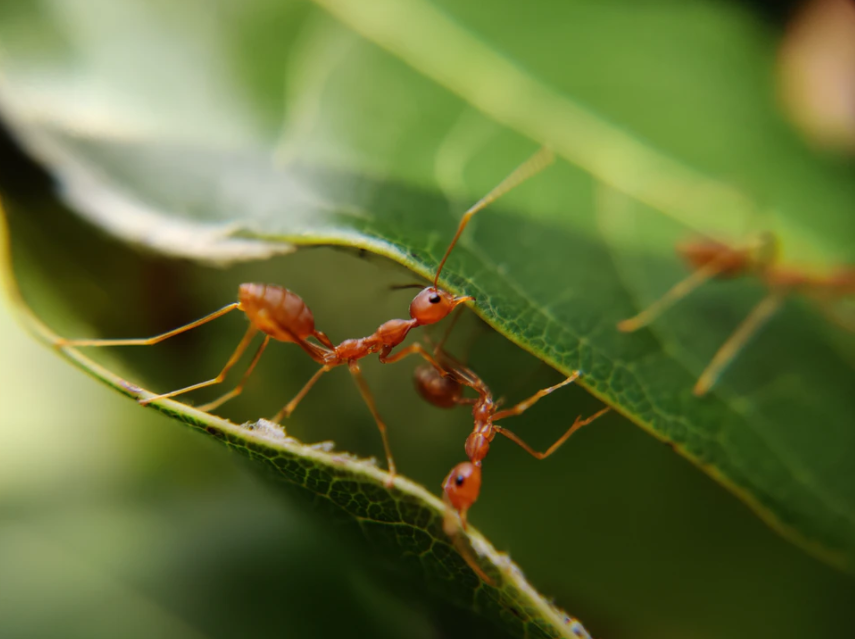When we are sick, the physical effects will keep us confined to our beds and prevent us from coming into contact with those who can infect us. Social distancing is an unavoidable feature of the natural world. Whereas other animals such as ants, limit encounters between individuals who play specific roles in the colony, all to reduce the risk of infection.
Animals such as monkeys, fish, birds, and lobsters avoid sick members of their species. Like humans, animals have the benefit of social distancing, in line with research. Stockmeier et al. examined disease responses in animal taxa and discovered how these responses naturally limit disease transmission.

Feed the sick, but protect the Queen
Many ant species sleep in close quarters with hundreds or thousands of close relatives. In response to the current threat, ants have evolved the ability to socially distance themselves. When disease is present in the colony, sick ants isolate themselves, and healthy ants reduce their interaction with other ants.
Healthy ants in fungus-treated colonies reduced their social interactions as well, but how they did so differ depending on their roles. If disease was present, uninfected foragers, who frequently interact with other foragers who may carry disease, kept their distance from the colony. This prevents them from accidentally putting the reproductively valuable colony members (the queen and "nucleus") in danger.
Furthermore, even in the face of illness, some animals maintain essential social interactions. Vampire bats, for example, continue to feed their sick groupmates while avoiding grooming them. We also practice nuanced social distancing, reducing non-essential social contacts while still caring for sick family members just like monkeys and bats do.
Also read: Quarantine and Social Distancing Toll on One's Psychological Health
Humans could learn a thing or two from bees about social distancing
Bees live in conditions that do not allow for social distancing; they have developed novel ways to deal with disease by working together to keep the colony healthy.
A bioscientist, Luke Holman, at the University of Melbourne, is currently researching social immunity in honeybees and claims that, for bees, colony survival is paramount in a way that we do not understand. Bees preserve their genes through colony survival, so when they commit merciless or "suicidal" acts, they are "saving themselves in a sense - albeit indirectly.
Although honey bees are unable to wear masks or socially isolate themselves, each worker contributes to the colony's overall health. And they all follow the same procedures.
They are also excellent decision-makers in groups. No one had even heard of social distancing a year ago but It's now become a way of life, one COVID-19 pandemic later. We must take care of ourselves and others by engaging in a behavior that is more visible and necessary now than ever before: active social distancing.
For more news and updates about nature and similar topics, don't forget to follow Nature World News!
Also read: COVID Particles in the Dust May Help Predict Potential Outbreaks
© 2026 NatureWorldNews.com All rights reserved. Do not reproduce without permission.





